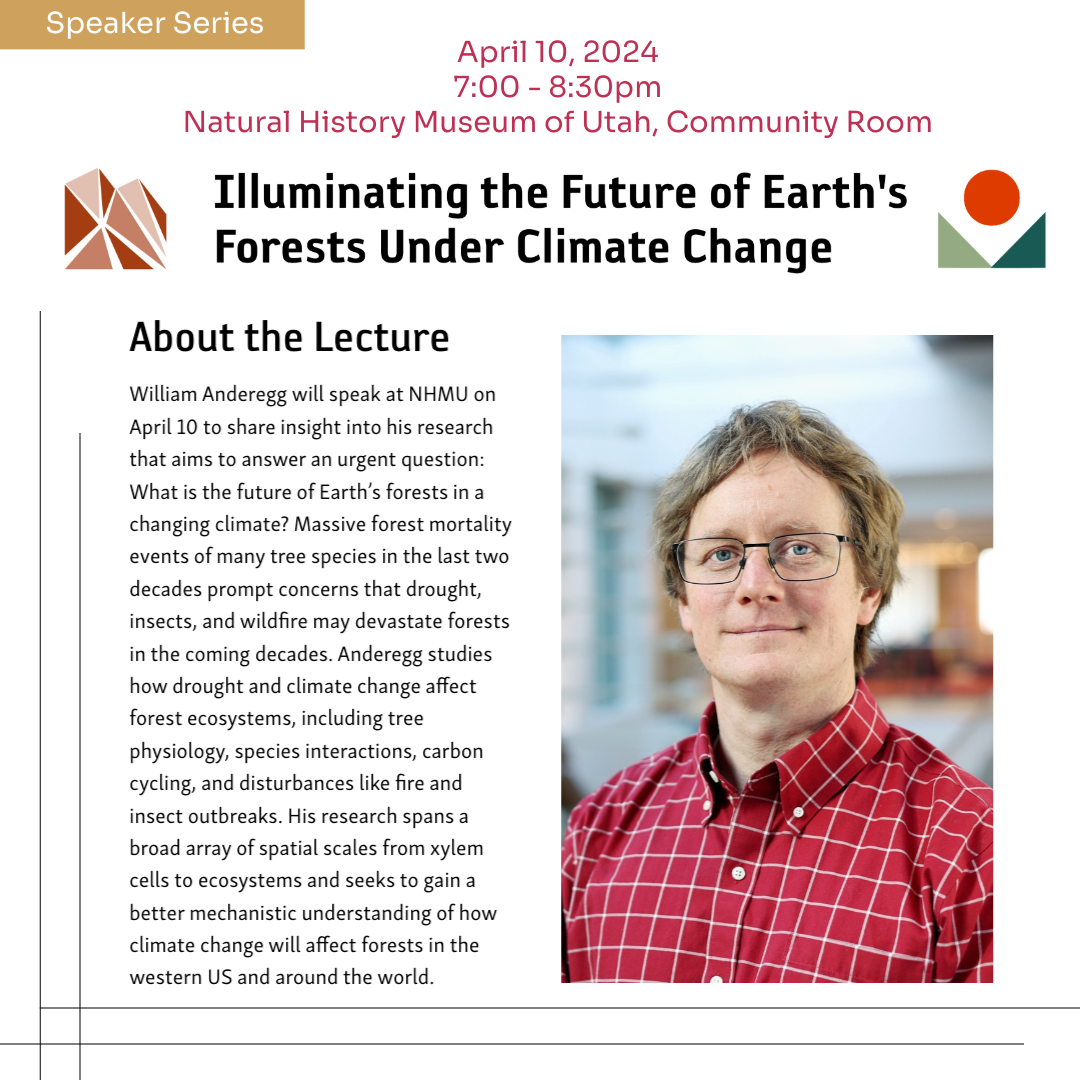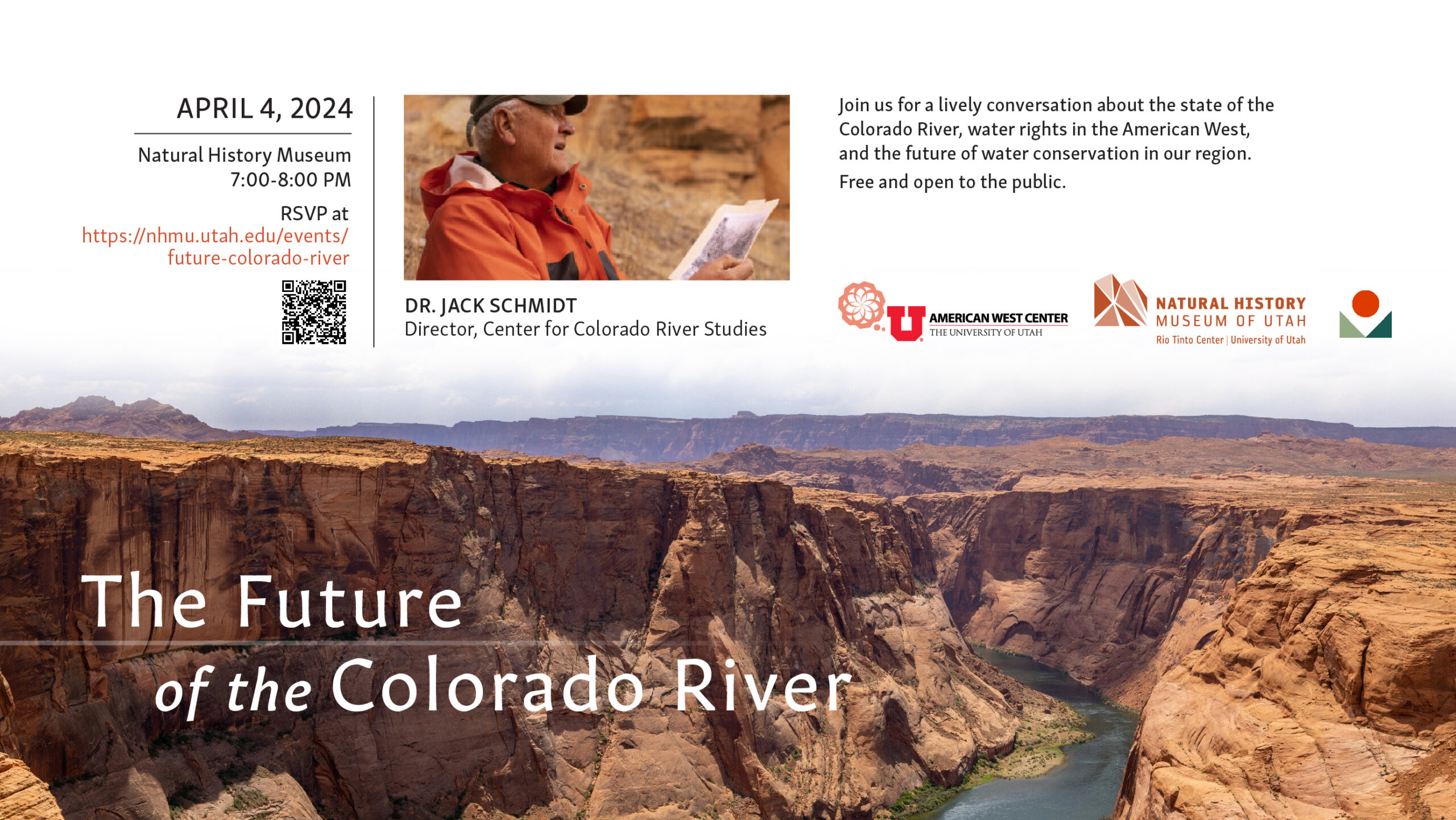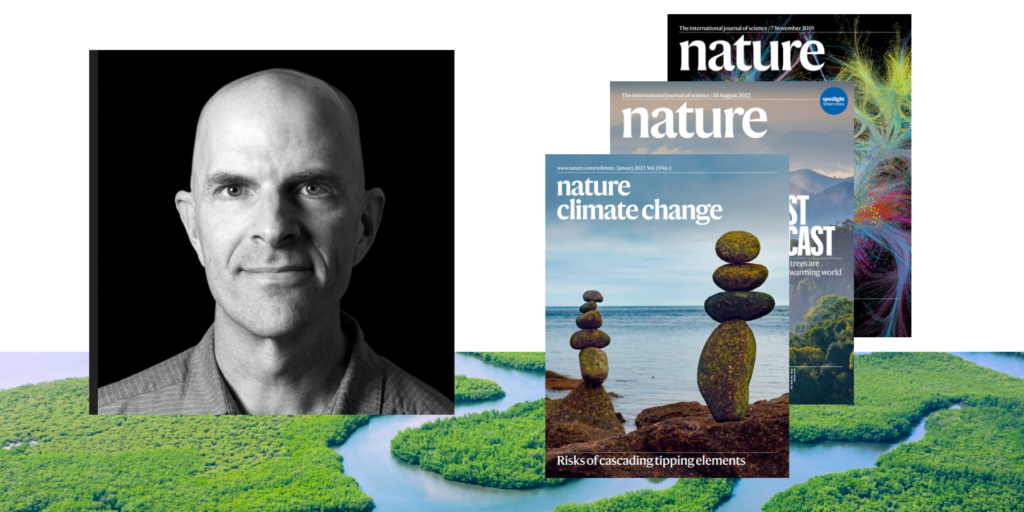Wilkes Center Speaker Series
About
The Wilkes Center Speaker Series provides a welcoming venue for scientists, researchers, and policymakers to discuss challenges and solutions for the defining issue of our age - climate change. The series seeks to create a platform for distinguished researchers to share insights, to foster meaningful opportunities for dialogue and collaboration, and to enhance awareness and motivate effective policy action.
Every fall and spring semester, the Wilkes Center will leverage its on-campus partnerships to deliver speakers on a broad range of topics related to climate science and policy including the impacts of climate change on ecosystems and biodiversity, the role of renewable energy in mitigating greenhouse gas emissions, and the latest research on climate modeling and prediction.
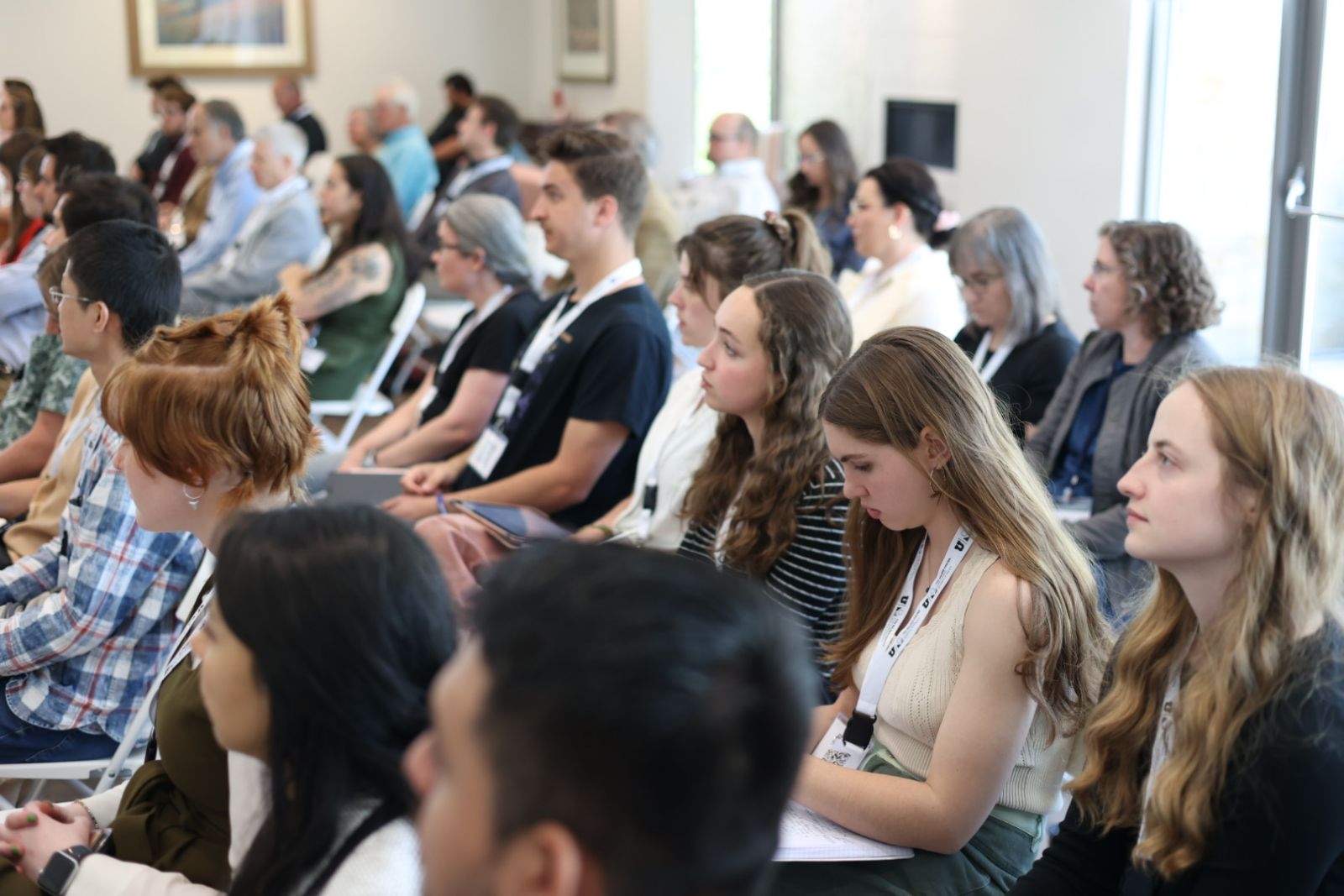
2024/25 Wilkes Center Speaker Series
Past Speaking Events
Friday, April 4, 1:00 to 2:30 p.m.
From Data to Dialogue: applying science to assess ecosystem carbon management strategies
Virtual Talk
Sara Kuebbing, Director of the Yale Applied Science Synthesis Program in The Forest School at the Yale School of the Environment
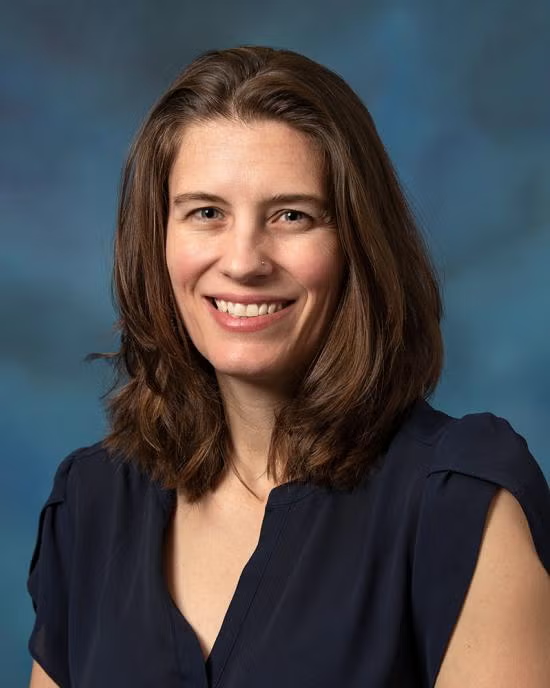
Sara is the Director of Research for the Yale Applied Science Synthesis Program. Sara is trained as an ecologist with expertise in conservation biology, invasion biology, plant ecology, community ecology, and ecosystem ecology. She conducts research on how humans can make informed decisions on how to best protect and conserve landscapes, ecosystems, and all the species that lives within them. Sara works with a variety of scientists, land managers, and policymakers to focus research questions and share her results. She is also a member of the Yale Center for Natural Carbon Capture’s Scientific Leadership Team.
Prior to moving to YSE, Sara was an Assistant Professor in the Department of Biological Sciences at the University of Pittsburgh where she ran an empirical research lab in plant ecology and invasion biology. Sara’s research training includes postdoctoral positions with the Yale Institute for Biospheric Studies and the Smith Conservation Fellows Program, a PhD from the Department of Ecology and Evolutionary Biology at the University of Tennessee and a BS from the Department of Entomology & Wildlife Conservation at the University of Delaware. Sara is excited to be the inaugural director of this new program, where we envision to be a space for open collaboration among practitioners, academics, and policymakers to develop applied science that guides sustainable land management. Stay tuned to Sara’s work through her Yale faculty page, Google Scholar and her personal website.
Watch the lecture here:
Tuesday, February 18, 6:00 p.m.
Steven Chu: My Random Walk in Science
Natural History Museum of Utah
The Wilkes Center and the College of Science are excited to host Nobel Laureate STEVEN CHU for the annual Frontiers of Science lecture!
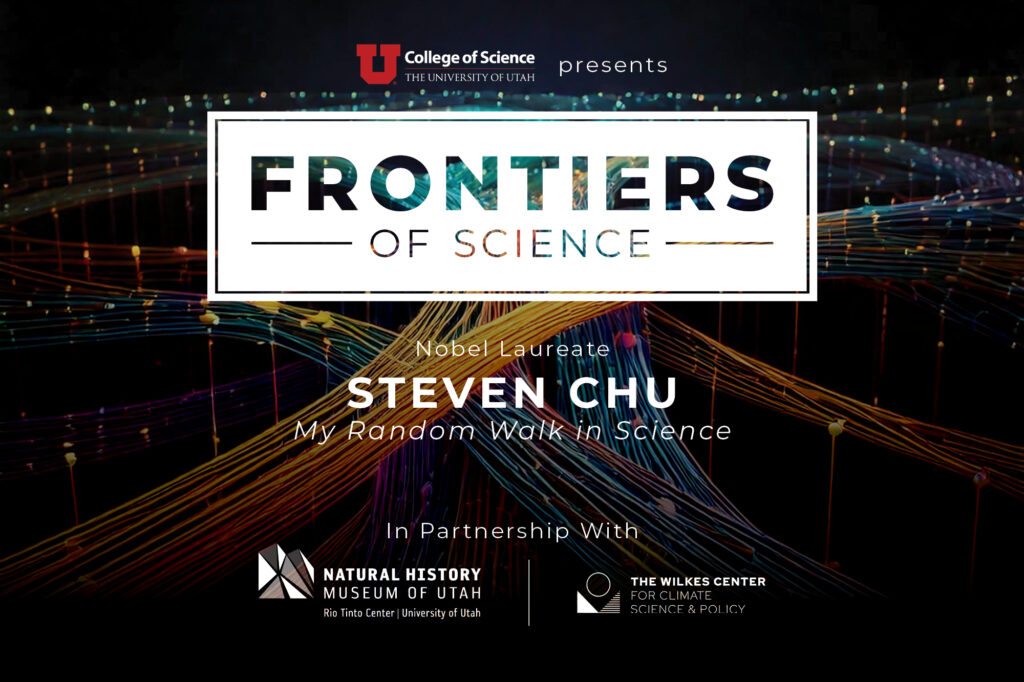 science.utah.edu/frontiers-of-science-steven-chu/
science.utah.edu/frontiers-of-science-steven-chu/
Science does not always advance with a clear vision. Scientific trajectories, and more generally, the course of one’s life, seldom follow predictable paths. In this Frontiers of Science lecture, Steven Chu will talk about the many turns in his career beginning with his days as a graduate student at the University of California, Berkeley, Bell Labs, Stanford, Lawrence Berkeley National Lab, the Department of Energy and his return to Stanford testing fundamental theories of physics, laser cooling and trapping of atoms, atom interferometry, single molecule biology and polymer physics, and more recently, clean energy research. Chu's presentation will focus on recent experiments on a new method to capture CO2 and understanding the physics of how the molecular motor dynein works.
Please RSVP for this Frontiers of Science lecture below by February 12.
Wednesday, November 13, 6:45-8 PM,
Professor John Lin: Greenhouse gases, Air Quality, and Future of the Wasatch Front
Salt Lake City Main Library Auditorium
Thank you to Friends of Alta for sponsoring this event. Go here to register. This event is free and open to the public.
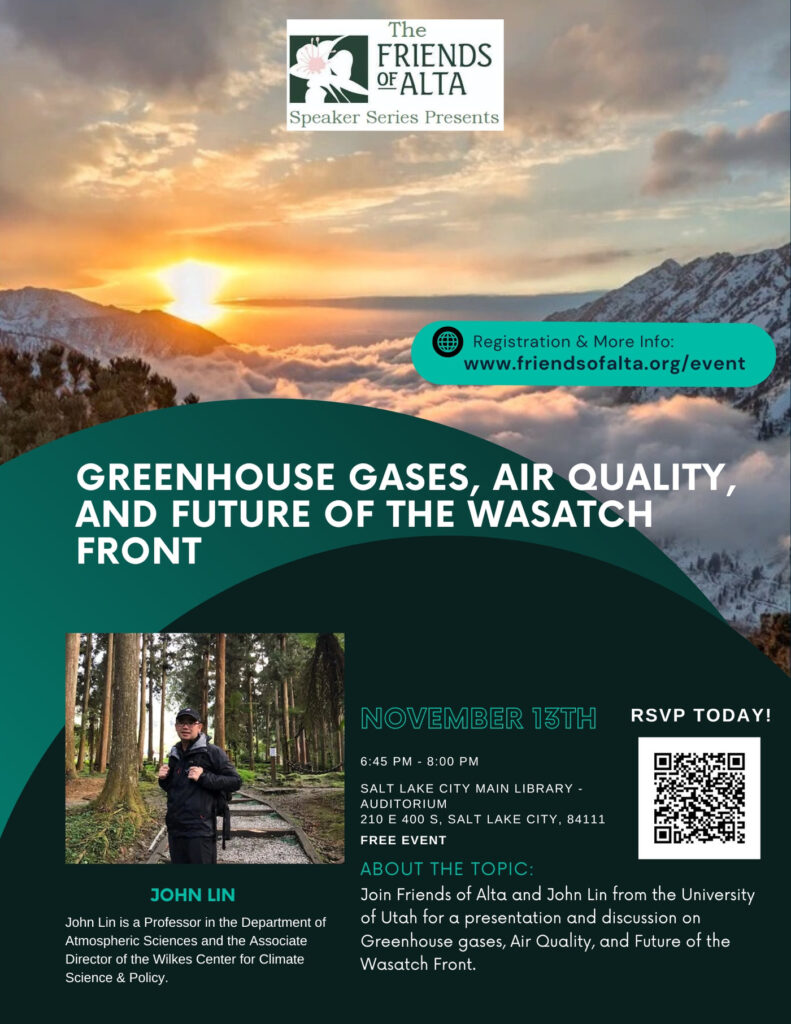 Join Friends of Alta and John Lin from the University of Utah for a presentation and discussion on Greenhouse gases, Air Quality, and Future of the Wasatch Front.
Join Friends of Alta and John Lin from the University of Utah for a presentation and discussion on Greenhouse gases, Air Quality, and Future of the Wasatch Front.
John Lin is a Professor in the Department of Atmospheric Sciences and the Associate Director of the Wilkes Center for Climate Science & Policy. He has over 20 years of experience researching the emissions and transport of greenhouse gases and atmospheric pollutants, publishing over 100 peer-reviewed journal papers to date. He was selected as a Earth Leadership Fellow in 2022 and participates regularly in national and international research efforts such as with the World Meteorological Organization and the European Union. John's research group (http://lair.utah.edu/) is carrying out greenhouse gas and air quality observations in the Salt Lake area, as well as in the Uinta Basin. John also works regularly with satellite observations from NASA to determine carbon emissions from cities around the world. He has recently served on the Great Salt Lake Strike Team to synthesize scientific knowledge and inform policy decisions surrounding the Great Salt Lake. John received his AB, AM, and PhD degrees from Harvard University.
Thursday, November 7th, 7-8 PM,
John Vaillant: Fire Weather: A True Story from a Hotter World
Utah Museum of Natural History
The Wilkes Center is thrilled to co-sponsor this event with the American West Center, the Natural History Museum of Utah, and the Stegner Center.
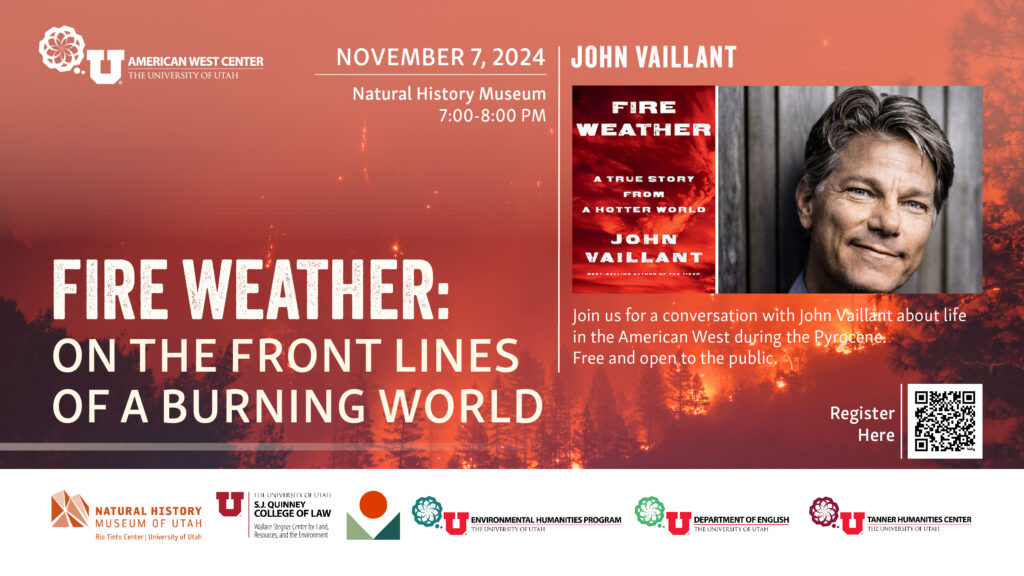 Bestselling author John Vaillant will be discussing his newest book, Fire Weather: A True Story from a Hotter World, and life in the Pyrocene in the American West.
Bestselling author John Vaillant will be discussing his newest book, Fire Weather: A True Story from a Hotter World, and life in the Pyrocene in the American West.
On Friday, November 8th, from 11:30 to 1 PM, John Vaillant will be in conversation with students in LNCO 2110. Light refreshments will be served.
All events are free and open to the public.
John Vaillant is an author and freelance writer whose work has appeared in The New Yorker, The Atlantic, National Geographic, and the Guardian, among others. His first book, The Golden Spruce (Knopf, 2005), was a bestseller and won several awards, including the Governor General's and Rogers Trust awards for non-fiction (Canada). His second nonfiction book, The Tiger (Knopf, 2010), won the B.C. Achievement Award for Canadian Non-Fiction, was a bestseller and has been published in 16 languages. Film rights were optioned by Brad Pitt’s film company, Plan B. In 2014 Vaillant won the Windham-Campbell Prize, a global award for non-fiction. In 2015, he published his first work of fiction, The Jaguar's Children (Houghton Mifflin), which was long-listed for the Dublin IMPAC and Kirkus Fiction Prizes, and was a finalist for the Writers’ Trust Fiction Prize (Canada). Fire Weather (Knopf, 2023), a #1 bestseller in Canada, won the UK's Baillie Gifford Prize, a global award for English language non-fiction, and was a finalist for National Book Award and the Canadian Writers‘ Trust Nonfiction Prize. It was named one of the ten best books of 2023 by The New York Times, among many other prominent publications in Europe and North America. Feature film rights have been optioned by Vendôme Pictures, which won an Academy Award for CODA in 2022.
Monday, September 23, 2024
6:00 - 8:00 PM
Urban Forest Strategies for a Future Climate
Red Butte Garden and Arboretum Orangerie
300 Wakara Way, Salt Lake City
The Wilkes Center is excited to co-organize this event with Red Butte Garden and Arboretum
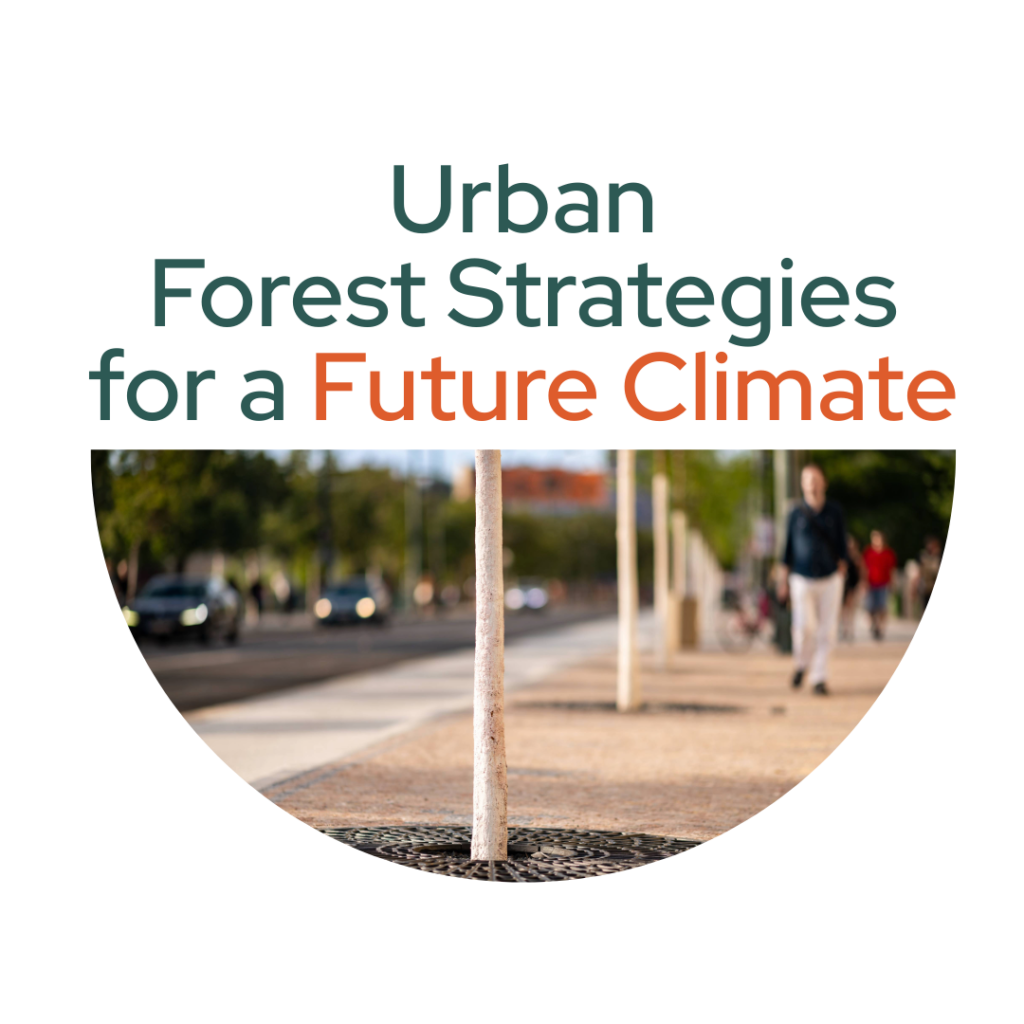 As cities become hotter with climate change, urban forests are a significant resource for cities to relieve urban heat islands during periods of extreme heat. But how does the urban Wasatch Front ensure that trees planted today will remain healthy and viable in the coming decades? What are the best practices for urban foresters, city planners, and property managers to preserve trees in the face of a changing climate? Come engage with a panel of urban tree experts to discuss which tree species are likely to be resilient and adaptable to hotter and drier conditions.
As cities become hotter with climate change, urban forests are a significant resource for cities to relieve urban heat islands during periods of extreme heat. But how does the urban Wasatch Front ensure that trees planted today will remain healthy and viable in the coming decades? What are the best practices for urban foresters, city planners, and property managers to preserve trees in the face of a changing climate? Come engage with a panel of urban tree experts to discuss which tree species are likely to be resilient and adaptable to hotter and drier conditions.
Panelists:
- Tony Gliot, Director, Salt Lake City Urban Forestry;
- Alexandra Ponette-Gonzalez, Associate Professor, Department of City & Metropolitan Planning, Curator of Urban Ecology, Natural History Museum of Utah;
- Charlie Perington, Arborist, Red Butte Garden and Arboretum; and
- Sarah Hinners, Director of Conservation and Research, Red Butte Garden and Arboretum (moderator)
Watch the recorded lecture here:
Wednesday, Apr. 17, 2024
7:00 - 8:00 PM
Robin Wall Kimmerer & Kyle Whyte
In Conversation
Moot Courtroom, S.J. Quinney College of Law
The Wilkes Center is excited to co-sponsor this event with the Tanner Humanities Center
Kimmerer:
Robin Wall Kimmerer is a mother, scientist, decorated professor, and enrolled member of the Citizen Potawatomi Nation. She is the author of Braiding Sweetgrass: Indigenous Wisdom, Scientific Knowledge and the Teachings of Plants, which has earned Kimmerer wide acclaim. Her first book, Gathering Moss: A Natural and Cultural History of Mosses, was awarded the John Burroughs Medal for outstanding nature writing, and her other work has appeared in Orion, Whole Terrain, and numerous scientific journals. In 2022, Braiding Sweetgrass was adapted for young adults by Monique Gray Smith. This new edition reinforces how wider ecological understanding stems from listening to the earth’s oldest teachers: the plants around us.
Whyte:
Kyle Whyte is George Willis Pack Professor at the School for Environment and Sustainability, teaching in the SEAS environmental justice specialization. He is founding Faculty Director of the Tishman Center for Social Justice and the Environment, Principal Investigator of the Energy Equity Project, and Affiliate Professor of Native American Studies and Philosophy. His research addresses environmental justice, focusing on moral and political issues concerning climate policy and Indigenous peoples, the ethics of cooperative relationships between Indigenous peoples and science organizations, and problems of Indigenous justice in public and academic discussions of food sovereignty, environmental justice, and the anthropocene. He is an enrolled member of the Citizen Potawatomi Nation.
Thursday, Apr. 4th
7:00 - 8:00 PM
The Future of the Colorado River
Dr. Jack Schmidt, Director, Center for Colorado River Studies
Natural History Museum
The Wilkes Center is excited to co-sponsor this event with the American West Center and NHMU.
Join us for a lively conversation about the state of the Colorado River, water rights in the American West, and the future of water conservation in our region. The event is free, but you must register at nhmu.utah.edu/events/future-colorado-river
Utah State University Professor Jack Schmidt has devoted nearly 40 years to research of river systems, centered on the Colorado River, its tributaries, and the Grand Canyon. During his academic career — as well as time spent as chief of the U.S. Geological Survey’s Grand Canyon Monitoring and Research Center — he has focused on the relationship of ecosystem health and dams, reservoirs and diversions associated with river management.
He currently serves as the director for the Center for Colorado River Studies, housed in the Quinney College of Natural Resources at USU. The center aims to produce innovative research, teaching and outreach that can help to inform focused decision-making and effective management of the Colorado River and other major rivers of the American Southwest.
Tuesday, March 19, 2024
12 Noon to 1 pm
Demystifying Nature
Michael White
Senior Editor at Nature
Crocker Science Center, Room 206
The inner workings of high profile journals can be mysterious. How do they decide what to publish, or even to send out to review? How is the process managed? What are the odds of getting published? Do they publish papers only in the interests of being controversial and getting press coverage? And who makes the decisions? Michael White -- Nature’s editor for climate -- discusses the overall journal processes and specific themes behind the climate science research published in Nature over the past 16 years.
Bio:
Michael White is Nature’s editor for climate science. He handles submissions on atmospheres, oceans, the cryosphere, and hydrology – past, present and future, on Earth and other planets. Michael works closely with Nature’s editors for biogeoscience, economics, and ecology and is broadly experienced in interdisciplinary Earth System Science. Before coming to Nature in 2008, Michael was an academic at Utah State University, where he conducted research on land surface phenology and terrestrial biogeochemistry -- mostly using computational models and satellite remote sensing.
Thursday, February 8 2024, 12:15 pm - 1:15 pm MST
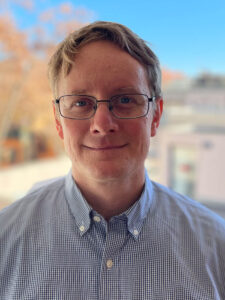 A Wallace Stegner Center Green Bag
A Wallace Stegner Center Green Bag
The Future of Western U.S. Forests Under Climate Change
William Anderegg,
Director of the Wilkes Center for Climate Science and Policy and Associate Professor in the School of Biological Sciences
LOCATION: College of Law and Virtual Event
Our research aims to answer an urgent question: What is the future of Earth’s forests in a changing climate? Massive forest mortality events of many tree species in the last two decades prompt concerns that drought, insects, and wildfire may devastate forests in the coming decades. We study how drought and climate change affect forest ecosystems, including tree physiology, species interactions, carbon cycling, and biosphere-atmosphere feedbacks. This research spans a broad array of spatial scales from xylem cells to ecosystems and seeks to gain a better mechanistic understanding of how climate change will affect forests in the western U.S. and around the world.
Bio:
William Anderegg is the Director of the Wilkes Center for Climate Science and Policy and an Associate Professor in the School of Biological Sciences at the University of Utah. He grew up hiking and camping in the mountains in Colorado. He received his bachelors and Ph.D. from Stanford University and did a NOAA Climate & Global Change Postdoctoral Fellowship at Princeton University. He received the Alan T. Waterman Award from the National Science Foundation, an NSF CAREER award, the National Laureate in Life Sciences from the Blavatnik Family Foundation, the Packard Foundation Fellowship in Science and Engineering, and the Early Career Fellow from the Ecological Society of America.
For more information and to Register:
Tuesday, January 23, 4:00 to 5:00 pm
Why have humans lost control of wildfire in the western United States?
Park Williams
UCLA Professor of Geography, Hydroclimatologist, 2023 MacArthur Fellow
Crocker Science Center, Room 206
Since the mid-1980s the annual area burned in the western U.S. has increased by approximately 300%. In forested areas, the increase has exceeded 1000%. Simple statistical relationships between fire activity and climate strongly suggest that this increase has been largely driven by warming and drying trends. Climate models indicate anthropogenic climate change as an important contributor to these trends. However, these results paint an overly simplistic picture. Fuel characteristics, ignitions by human, and firefighting also critically impact wildfire, and modulate the way in which climate affects wildfire. Further, these processes are highly heterogeneous geographically and have changed substantially in many areas over the past century. In this talk I will use a new, spatially explicit forest-fire and ecosystem model to assess of the magnitude and geography of the contribution of anthropogenic climate change to western U.S. forest-fire activity since the 1950s and how climate change is likely to affect forest fire, carbon, and ecosystems over the remainder of the 21st century.
Bio:
Park Williams is a hydroclimatologist whose research aims to understand the causes and consequences of hydrological extremes such as drought. Much of his research focuses on hydroclimatology in its own right, and much also aims to improve understanding of how hydrological extremes affect life on earth (bioclimatology). Questions that he finds especially interesting involve the effects of human-caused climate change on the hydrological cycle, ecological systems, and humanity through extreme events such as heat waves, wildfires, and flooding.
Watch the recorded lecture here:
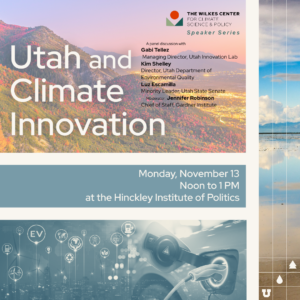
November 13, Noon to 1:00 pm
Utah and Climate Innovation Panel discussion
A panel discussion with:
- Gabi Tellez, Managing Director, Utah Innovation Lab
- Kim Shelley, Director, Utah Department of Environmental Quality
- Luz Escamilla, Minority Leader, Utah State Senate
- Moderator: Jennifer Robinson, Chief of Staff, Gardner Institute
Hinckley Institute caucus room - Room 2018, Gardner Commons
The Wilkes Center for Climate Science & Policy, along with the Gardner Policy Institute and the Hinckley Institute of Politics co-hosted this community discussion on the role of innovation in tackling climate change. Could the state’s new Beehive Emissions Reduction Plan, using federal funds through the Inflation Reduction Act of 2022, help to stimulate local industries and Utah-focused green initiatives? How can the state support a shifting Utah economy that is responsive to climate change and poor air quality? Where does Utah have unique opportunities to meet demand for sustainable energy and climate-conscious technologies and businesses?
CO-SPONSORED BY:
The Wilkes Center for Climate and Policy
Kem C. Gardner Policy Institute
Watch the recorded discussion here:
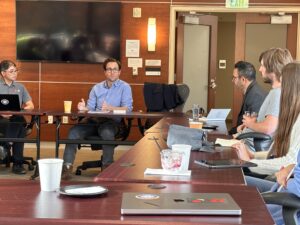 October 25, 10 to 11 AM
October 25, 10 to 11 AM
Wilkes Center Coffee Hour with
David Wallace-Wells,
New York Times Climate Change Writer
Carolyn Tanner Irish Humanities Bldg, Jewel Box Conference Room
David Wallace-Wells is currently a columnist and staff writer at The New York Times, where he writes a weekly newsletter on climate change, technology and the future of the planet. He is author of The Uninhabitable Earth: Life After Warming.
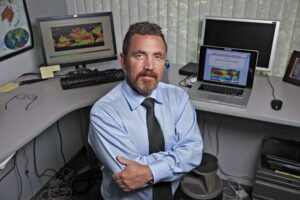
Wilkes Center Visiting Chair Ben Santer, presented several lectures at the University of Utah during his visit in September and October 2023. Santer is the Fowler Distinguished Scholar in Residence at Woods Hole Oceanographic Institution and a Visiting Researcher at UCLA’s Joint Institute for Regional Earth System Science & Engineering.
Lectures:
Exceptional Stratospheric Contribution to Human Fingerprints on Atmospheric Temperature (September 27, 2023)
Fingerprinting the Climate System Lecture (October 4, 2023)
Not Just Ancient History: Lessons Learned from the 1995 IPCC Report (October 5, 2023)
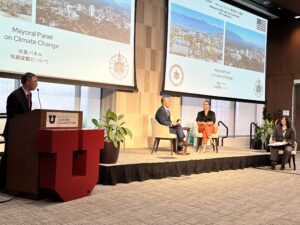
Sunday, July 23, 2023
Sister Cities Mayoral Climate Change Panel
The Wilkes Center and the S.J. Quinney College of Law co-hosted a Climate Change Panel discussion between Salt Lake City Mayor Erin Mendenhall and Mayor Yoshinao Gaun of Matsumoto, Japan. In recognizing the 65th anniversary of successful collaborations between these two sister cities, the two mayors discussed ways the cities can share innovations for mitigating and adapting to global climate change. The discussion was moderated by Professor John Lin, Associate Director of the Wilkes Center.
Watch the recorded discussion and see the presentation slide deck HERE.
